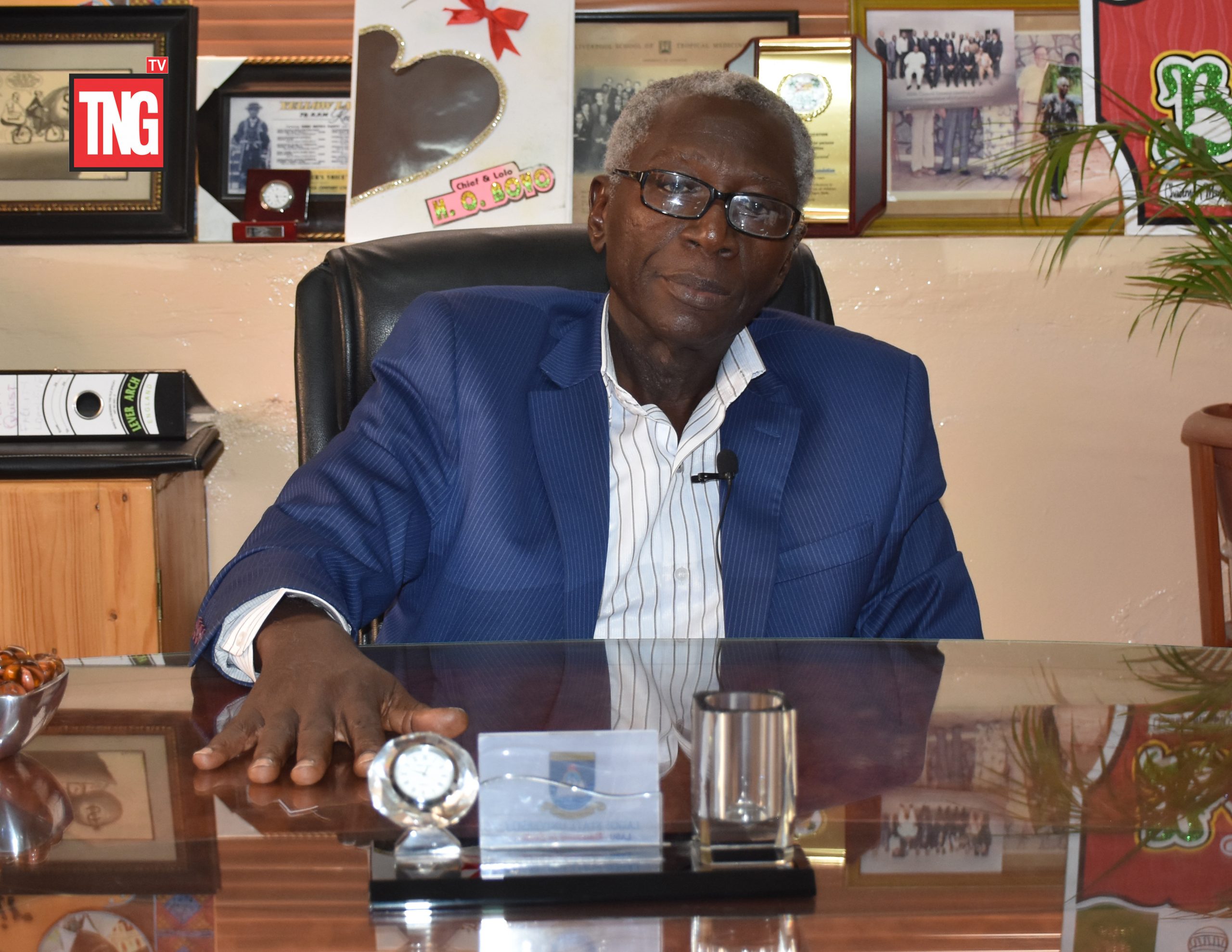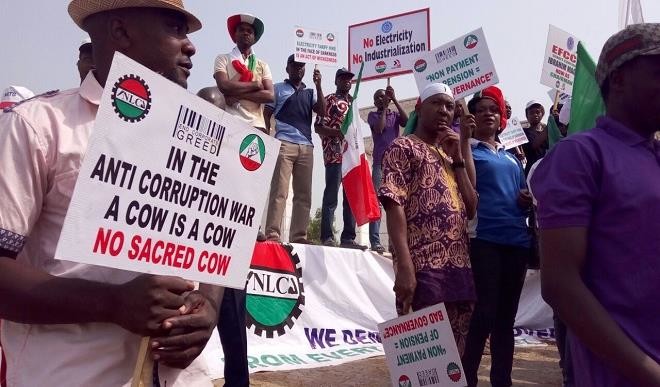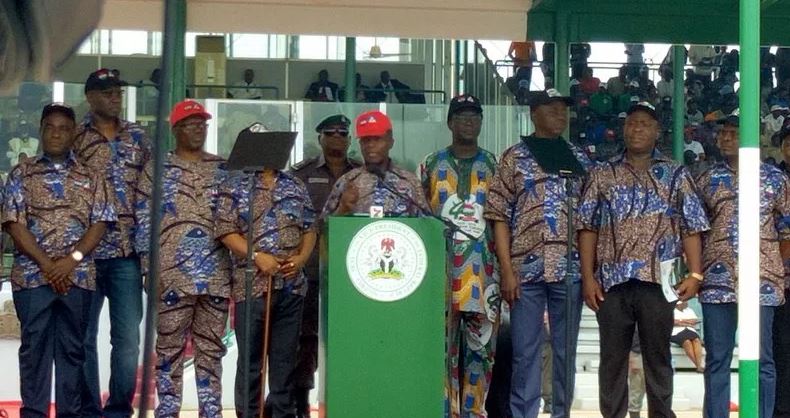By Henry Boyo
The Oranised Labour movement celebrated this year’s 2018 May-Day with the traditional processions and fiery speeches from Labour Leaders in various State Capitals, including Abuja.
Labour’s focal demand is for a steep upward reviewed of the present N18,000 Minimum Wage to N56,000/month. On their part, however, the Nigerian Labour Congress, “has decided that our demand is to be paid N66,500 as the new Minimum Wage, no more no less;” according to FCT NLC Chairman, Lawrence Amechi, “the present N18,000 is death wage under the current economic realities.
Furthermore, the Union of Pensioners have also demanded a minimum pension of N40,000/month; while the FCT Minister, Mohammed Bello, also agreed that “indeed, N18,000 which translates to N600/day, clearly puts the Nigerian workers amongst the lowest paid in the world.”
However, if over half of the States cannot fund their present monthly salary obligations, it would be clearly overoptimistic to expect that Labour’s demand will be fully met.
The title “Workers’ Welfare: Has Labour Lost the Plot?” was first published on 20/10/2014; a summary of that paper follows, hereafter, please read on.
“Trade Unions were a critical force in the agitation for Nigeria’s independence from British colonial rule. Regrettably, with the attainment of independence and the later advent of military dictatorship, Labour was deliberately fractionalized by successive governments and compromised, to become a mere shadow without its former awesome authority; indeed since after the failed campaign for the validation of 1993 elections, with the capture and incarceration, without trial, of Frank Kokori, Secretary General of NUPENG, Organised Labour now occasionally, sadly, finds its voice on issues relatingto minimum wage levels and the sustenance of the nationally disenabling economic strategy of subsidising fuel prices with billions of dollars annually.”
“Surprisingly, Labour has inexplicably become mere spectators of unbridled treasury looting, blatant miscarriage of justice and impunity in public administration; consequently, the working class has largely been reduced to wandering flocks of sheep with well nourished but careless shepherds.”
“Nonetheless, the question is how successful is Labour in its pursuit of realistic minimum wages and the sustenance of fuel subsidy. The May-Day speeches of Labour Leaders on Friday, 1st May 2009, for example, were strident on the demand for a reasonable minimum wage; consequently, the Unions demanded that the existing N7,500 ($50) minimum wage be increased to N50,000 ($333)/month. In reality, demands for between 2-20% wage increases are not unusual in better managed economies elsewhere, but a demand for almost 600% wage increase at a go would be unusual, and any agreed minimum wage would generally recognise the adverse impact of inflation on the purchasing power of all income earners.”
“Inspite of an abiding annual inflation average of over 6%, the N7,500 minimum wage subsisted for over 10 years, with the consequent loss of over 60% of its purchasing value, before a higher minimum wage-level of N18,000 was adopted later in 2010. Similarly with average annual inflation rates of over 8% since then, the current minimum wage has also lost over 40% of its purchasing value; consequently, inspite of bountiful Naira supply as well as officially, declared foreign exchange ‘surplus’ in the National Treasury, the lowest paid workers, who constitute the majority of our population have equally become severely impoverished.”
“The plight of workers would obviously be much worse where some states are unable to pay the N18,000 minimum wage or where government owes several months salary arrears; regrettably, there is no overt evidence of Organised Labour’s intervention to speak out or remediate the plight of the ordinary worker in such instances.”
“However, Labour and indeed those Nigerians with a conscience would agree that N50,000 ($400) is probably more appropriate as minimum wage with the severe infrastructural deprivations in our social and economic environment, where a one-room abode in a ‘face me I face you’ apartment may cost as much as N10,000/month. Nonetheless, if some states are incapable of paying N18,000, how does one expect them to pay N50,000; besides, with annual inflation rate still hovering around 8%, over 40% of a N50,000 minimum wage would also be lost to inflation within 5 years without a wage review!”
“Furthermore, experience has taught us from the time of the Udoji Salary Review that such ‘benevolent’ wage increases also drive the rate of inflation rapidly. So if nominal wage increases is not the answer, how then can Labour defend the existing purchasing power of its members if it is inappropriate to advocate for significant wage increments to ameliorate workers’ deprivations?”
“Indeed, if quantum increases could ultimately make the wage earner and the economy worse off, then it is imperative that we consider the relevance of less nominal income actually buying more without fuelling inflation; for example, if N18,000 current minimum wage actually commands a value of about $110 at an exchange rate of N160=$1, the same wage rate would command the purchasing value of $220 if the Naira exchange rate is N80=$1.”
“In other words, the stronger the Naira the more enduring would be the purchasing power of the presently paltry minimum wage and the better it is for the average worker. The question then is how can the value of the Naira be improved against the dollar? We do not advocate that a benign rate be adopted by fiat; all that is required is for the Naira to be given a fair chance to determine its own level without the insistent atavistic intervention by the Central Bank, when it continuously floods the market with fresh Naira values and instigates an embarrassing market surplus to compete against the rationed dollar supplies of the CBN when it substitutes Naira for dollar allocations. But, are the Unions interested in such enduring solutions to the issues of low wages, inflation and workers’ welfare? The answer to this question is out there in the wind!”
“Similarly, a Naira exchange rate of N80=$1 will immediately also abolish any further payment of wasteful fuel subsidies, so that such funds could be more appropriately deployed to remediate our infrastructural deficit so that the masses will enjoy better facilities for education, health, transportation, nutrition, etc.”
“Indeed, Labour leaders know that the economic contradictions, that impoverish Nigerians are instigated by the inexplicable unyielding burden of surplus Naira despite heavy government debt accumulation and an alleged scarcity of funds to grow our economy. Curiously, Labour remained mute even when the immediate past CBN Governor, Lamido Sanusi willfully confessed to government’s continuous folly in placing deposits at 0% with banks, only to return thereafter to borrow from the same banks and pay double-digit interest rates for money the Apex Bank intends to keep as idle funds.”


